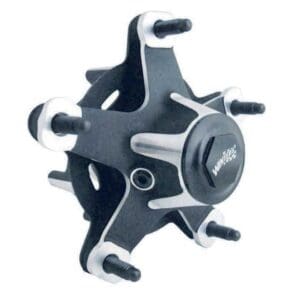In the trucking industry, where every mile counts, reliable tire performance plays a critical role in assuring safety, efficiency, and profitability. Among the various components that contribute to a truck’s tire performance, tire valves often receive less attention than they deserve. However, as technology evolves, so does the importance of durable tire valves. This post explores the advancements in tire valve technology and why durability has become a cornerstone in the trucking industry.
The Basics of Tire Valve Technology
Tire valves, though small in size, have a significant impact on a truck’s performance. These components control the flow of air into and out of the tire, maintaining the pressure necessary for optimal tire function. In the early days, tire valves were simple, often made of basic rubber and metal materials. While these valves served their purpose, they had limitations, especially under the intense demands of heavy-duty trucks.
The Shift Towards Durability
As the trucking industry expanded, the need for more durable tire valves became apparent. Trucks began to carry heavier loads over longer distances, often traversing challenging terrains and extreme weather conditions. The standard rubber valves could not withstand the high pressures and temperatures encountered by these vehicles. Premature valve failure led to air leaks, blowouts, and costly downtime, prompting manufacturers to innovate.
Advancements in Materials and Design
To address the challenges faced by heavy-duty trucks, manufacturers began to experiment with new materials and designs. The introduction of metal valves, particularly those made from brass and stainless steel, marked a significant step forward. These materials offered superior resistance to corrosion, temperature extremes, and mechanical wear.
The design of tire valves also evolved. Engineers developed reinforced valve stems and cores that could endure the high pressures typical of truck tires. These valves featured improved sealing mechanisms to prevent air leaks, even under the stress of heavy loads. The use of high-quality synthetic rubber for the gaskets further enhanced the valves’ durability, ensuring a tight seal and longer lifespan.
-
 High Heat Grommet Seal 60 Degree Truck Valve – TR555D$2.99
High Heat Grommet Seal 60 Degree Truck Valve – TR555D$2.99 -
 3.75 Inch Clamp-In Brass Valve Stem – TR572$2.39
3.75 Inch Clamp-In Brass Valve Stem – TR572$2.39 -
 High Heat O-Ring 60 Degree Clamp-In Valve – TR545D$2.69
High Heat O-Ring 60 Degree Clamp-In Valve – TR545D$2.69 -
 4.38 Inch Clamp-In Brass Tire Valve Stem – TR573$2.77
4.38 Inch Clamp-In Brass Tire Valve Stem – TR573$2.77 -
 Alcoa 5.5 Inch 90 Degree Heavy Duty Truck Valve – TR510$5.49
Alcoa 5.5 Inch 90 Degree Heavy Duty Truck Valve – TR510$5.49 -
 Hamaton TPMS Metal (Aluminum) Valve for CONTI-VDO Sensors (6-231C)$5.89
Hamaton TPMS Metal (Aluminum) Valve for CONTI-VDO Sensors (6-231C)$5.89 -
 Alcoa 90 Degree 4.75 Inch Heavy Duty Truck Valve – TR509$4.92
Alcoa 90 Degree 4.75 Inch Heavy Duty Truck Valve – TR509$4.92 -
 Hamaton Aluminum TPMS Schrader Valve .625 Inch Rim Hole (TPMS-416AL)$7.99
Hamaton Aluminum TPMS Schrader Valve .625 Inch Rim Hole (TPMS-416AL)$7.99
Technological Innovations: Smart Tire Valves
The most recent evolution in tire valve technology involves the integration of smart technology. Tire pressure monitoring system (TPMS) valves, equipped with sensors, now provide real-time data on tire pressure. These valves communicate with onboard monitoring systems, alerting drivers to potential issues before they escalate into serious problems. For fleet managers, this technology offers invaluable insights into tire health, allowing for proactive maintenance and reducing the risk of unexpected breakdowns.
TPMS valves also contribute to fuel efficiency. By maintaining optimal tire pressure, these valves help reduce rolling resistance, leading to lower fuel consumption. This benefit aligns with the trucking industry’s growing focus on sustainability and cost reduction.
The Importance of Durability in Modern Trucking
Today, durable tire valves are more than just a convenience; they are a necessity. The trucking industry demands components that can withstand the rigors of long-haul driving, heavy loads, and harsh environments. Durable tire valves reduce the risk of tire failure, ensuring that trucks stay on the road longer and operate more efficiently.
Moreover, the cost savings associated with durable tire valves are substantial. By preventing air leaks and blowouts, these valves minimize the need for frequent tire replacements and emergency roadside repairs. They also contribute to better fuel economy, which is crucial in an industry where fuel costs are a significant portion of operating expenses.
Future Trends in Tire Valve Technology
Looking ahead, the evolution of tire valve technology will likely continue to focus on enhancing durability and smart capabilities. As the trucking industry embraces automation and connectivity, tire valves will play a key role in ensuring vehicle safety and efficiency. We can expect further advancements in materials, such as the use of advanced polymers and composites, to increase the lifespan and reliability of these components.
Additionally, the integration of tire valves with vehicle telematics systems will become more sophisticated. These systems will not only monitor tire conditions but also predict maintenance needs, optimize routes based on tire performance, and contribute to overall fleet management strategies.
The evolution of tire valve technology reflects the trucking industry’s ongoing pursuit of safety, efficiency, and durability. From simple rubber valves to advanced TPMS valves, these components have undergone significant changes to meet the demands of modern trucking. As the industry continues to evolve, the role of durable tire valves will only grow more critical, ensuring that trucks can handle the challenges of the road with confidence.











